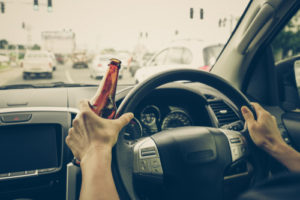 New Jersey DUIs
New Jersey DUIs
Driving under the influence is obviously dangerous, but sometimes we don’t make the best decisions. If you have been busted for a DUI, you may be wondering what usually happens. There are common procedures for testing if you are under the influence, arresting you, and charging you with a DUI. You may also be wondering what the police are allowed to do in these situations. Arming yourself with this information can prepare you in case you ever make this mistake or help with your case if you already have charges against you.
Getting Pulled Over and Police Observations and Questions
First and foremost, you will likely get pulled over by the police. If you are not under the influence of anything but have drugs in your car, cops sometimes try to get you for a DUI just using this evidence. However, if you are not under the influence (or even if you are), but were driving perfectly with no indication of being under the influence, this is technically not allowed. A police officer must have a reason to believe you are under the influence of drugs or alcohol. After this they will fully look over everything, write down observations, and ask you questions that you don’t have to, but are expected to answer. Remember that you always retain your right against self-incrimination, even if you are not told that you have that right.
Searching Your Car and Property
By law, the police officer must have probable cause to be able to search your car. If they have probable cause to search, they do not need a warrant or your consent to search. If the officer sees drug paraphernalia or can smell marijuana, for instance, there is probable cause to search. If there is no sign of drug use or possession, searching your car is not allowed. Usually, however, it is very hard to prove otherwise when it is your word against a “respectable” officer of the law.
Roadside Tests
There are two types of roadside tests that a police officer may require if he comes to a conclusion you are or may be under the influence or drunk. The first is a field sobriety test which could be a horizontal gaze nystagmus test, a walk and turn test, or a one-leg stand test. They may also use a PBT (AKA portable breath test) where you breathe into a machine which can test your blood alcohol level. These PBTs cannot be used as evidence, but can help to give an officer an idea of whether you are under the influence of alcohol. At the conclusion of these tests, the officer will make a decision as to whether to place you under arrest for DWI.
Mandatory Chemical Tests and Implied Consent
New Jersey is an implied consent state. This means that just by driving on the roads of the state, you have already given your consent to submit to chemical breath testing to determine your blood alcohol level if you are arrested for DWI. If you refuse to take the breath test, you will be charged with breath test refusal, which is a separate offense under New Jersey law.
Arrest, Detention, and Release Following the DUI
When you are arrested for DWI, you will be taken to the police station for breath testing. After your arrest is processed, you can be released to an adult, or you can be held for 12 hours if no one can pick you up from the police station. DUI in New Jersey is not a criminal offense, so no bail will have to be posted prior to your release, and you will not be detained at the police station longer than 12 hours.
Contact an Experienced Hamilton Township DWI Defense Attorney About Your Drunk Driving Charges in New Jersey
Have you been charged with a DWI or DUI offense in New Jersey? A drunk driving conviction could leave you with a permanent record, and it could result in your driver’s license being suspended for a very long time. That is why it is imperative that you speak with a qualified DWI defense lawyer about your case. The Scardella Law Firm LLC represents clients charged with drunk driving, breath test refusal, and related offenses in Trenton, Ewing, Lawrence, Princeton, and throughout New Jersey. Call 609-372-5285 or fill out our confidential online contact form to schedule a free consultation about your case. We have an office located at 2653 Nottingham Way, Hamilton Township, NJ 08619.
The articles on this blog are for informative purposes only and are no substitute for legal advice or an attorney-client relationship. If you are seeking legal advice, please contact our law firm directly.
